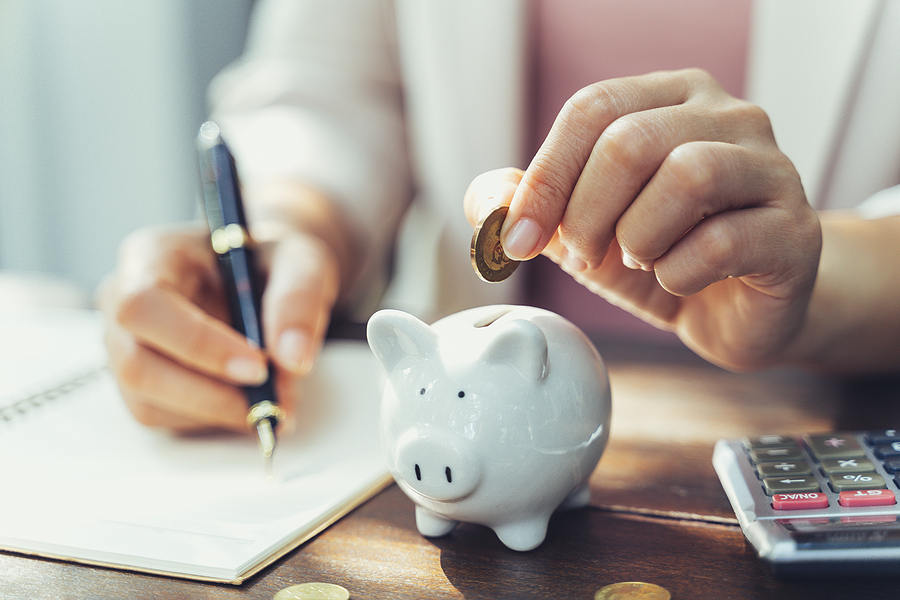Have you ever had an emergency?
Of course, you have. But if you don’t have an emergency fund, chances are you’ll scramble at the last minute to cover unexpected costs. If there’s one thing the COVID pandemic taught, it’s the importance of having a way to fund emergencies. You never know when you’ll need money to sustain you during periods you aren’t bringing in an income, whether it’s during a pandemic or when a family member needs care for a sustained period.
You can also use your emergency fund if you lose your job or have to replace a major appliance. An emergency fund prevents you from having to charge expenses to a credit card or, worse, get a loan, which would add to your debt. You can never predict when an emergency will strike, but having money set aside in a dedicated emergency fund can make all the difference in weathering the storm.
Set Up a Separate Account for Your Emergency Fund
Start a separate account for your emergency fund. An emergency fund is your safety net. It’s there to protect you from financial emergencies, like a job loss or major health issue, so it should be in a separate account you can’t touch unless you need it. Tuck your emergency fund money safely away in a savings account that earns a competitive interest rate and is FDIC-insured. That way, you won’t get hit with a penalty for early withdrawals when you need to use it.
Think About How Much Money You’ll Need in Your Emergency Fund
Depending on how much you make and what your living expenses are (whether you own or rent your home, how much debt you have), keep three to six months of living expenses in a savings account. Since the pandemic, some experts believe that having a year’s worth of income stored away is even better. The more income and assets you have, the less liquid savings you need to maintain. Although the funds in your emergency fund should be liquid, you may also want to include some investments such as stocks or bonds in your emergency fund to provide an extra cushion.
Decide How Much to Add to Your Emergency Fund
Experts suggest placing 2 percent of your salary monthly into an emergency fund. You can do this by diverting a portion of your paycheck – perhaps by setting up an automatic transfer – to the account that houses your emergency fund each month. When you set up an automatic transfer, you know it’ll get done even if you forget to do it one month. The best way to start is with a small percentage of each paycheck. You might begin with 1 or 2 percent of your monthly income and increase it as you get used to making regular contributions. Consistency is key to building up an emergency fund you can depend on if a crisis should strike.
Cut Back on Spending
Make sure you can contribute monthly to your emergency fund by reviewing your current spending. Take a close look at your monthly expenses and eliminate unnecessary expenses like eating out, cable TV, and cell phones. Find cheaper substitutes for the more expensive things you enjoy. Try taking a staycation instead of a trip that requires an overnight stay in a hotel, if you enjoy traveling.
Don’t Tap Into Your Emergency Fund for Indulgences
To make up for the lack of savings, some people choose to pay for their indulgences with their credit cards and then pay off their bill in full when the bill arrives at the end of the month. While this works in theory, it doesn’t always work out in practice. Herein lies the danger – by tapping into your emergency fund for non-emergencies, you can easily deplete it before another emergency comes along. This can lead to no money saved when a true emergency occurs and could leave you with no financial safety net at all. The temptation to raid your savings for a non-emergency expense, such as a vacation or a new television, can be overwhelming. But if you do so, you’re robbing your future self.
Start Now
Don’t wait to start your emergency fund. Waiting until your next payday is too late – start saving as soon as possible. The sooner you begin putting money away, the more quickly it will grow and become a viable resource you can depend on. If you wait until next week or next month to start building an emergency fund, it may never happen. There will always be another reason why you can’t start. Having something to fall back on is critical in uncertain times.
The Bottom Line
If you don’t have an emergency fund, it’s time to start one. Every household should have a cash reserve equal to at least three months of living expenses, and six months to a year is even better. This cushion can help keep you from taking on debt in the event of a financial setback. It’s possible to live an entire life without ever experiencing an emergency. But for most people, emergencies are inevitable. The trick is to have a plan in place to deal with them when they happen.
References:
“How to Build an Emergency Fund – Investopedia.” 18 Feb. 2021, investopedia.com/personal-finance/how-to-build-emergency-fund/.
“Why an Emergency Fund Is More Important Than Ever.” 30 Sept. 2021, investopedia.com/financial-edge/0812/why-an-emergency-fund-is-important.aspx.
“An essential guide to building an emergency fund ….” consumerfinance.gov/start-small-save-up/start-saving/an-essential-guide-to-building-an-emergency-fund/.

May I simply say what a comfort to discover somebody who genuinely knows what they are talking about over the internet. You actually understand how to bring a problem to light and make it important. More people ought to check this out and understand this side of the story. I cant believe you arent more popular because you surely possess the gift.